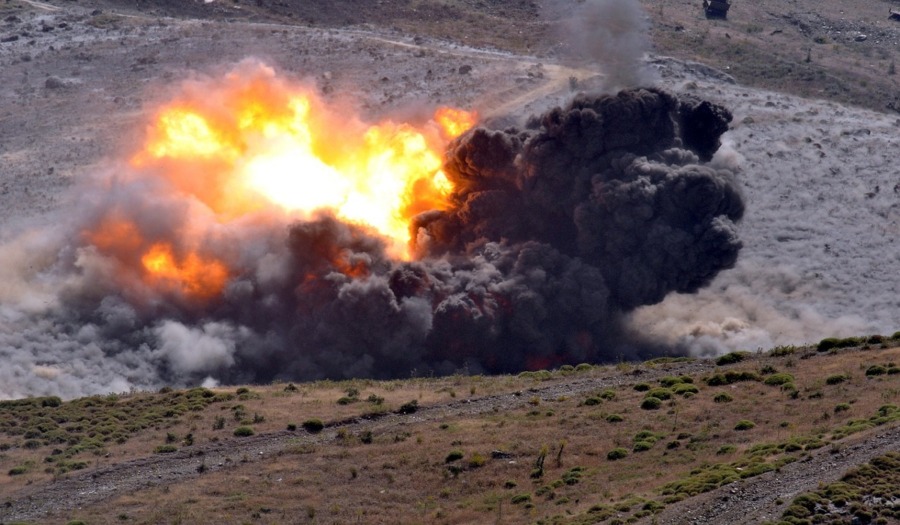Recently, the United States announced its decision to send cluster munitions to Ukrainian soldiers to aid in the ongoing war against Russia. The use of cluster munitions is controversial due to their destructive nature and potential for long-lasting harm. It is a philosophical question concerning cluster munitions in warfare and the justifications for those choices when considering all weapons of war are deadly by design. Furthermore, the question of why the United States, Russia, and Ukraine have yet to ban cluster munitions despite their known risks and consequences requires further investigation as to their rationale.
Cluster munitions are weapons that contain multiple smaller explosive submunitions. These submunitions, or bomblets, are scattered over a wide area, covering a larger target zone. Cluster munitions aim to increase the chances of hitting a target or inflicting maximum damage. However, their widespread use raises serious humanitarian concerns.
In warfare, the primary objective is to neutralize or defeat the enemy. In this context, lethal weapons, including bombs and munitions, are designed to cause death and destruction. However, the ethical dilemma lies in differentiating between various deadly weapons and their potential impact.
While all weapons are created with the intent to harm, there is a distinction in their level of harm and long-term consequences. Cluster munitions pose a particularly severe threat due to their wide dispersal and the many unexploded bomblets left behind after an attack. These unexploded ordnances (UXOs) can pose a serious risk to civilians, even years after a conflict has ended. Their indiscriminate nature makes them a major concern for civilian populations, as they can explode upon contact with unsuspecting individuals.
It is crucial to acknowledge that the intention behind choosing one type of weapon over another is not solely based on the potential to cause harm. Factors such as military strategy, tactical effectiveness, and the availability of resources also play significant roles. While the intent to harm remains constant, decision-makers may justify using certain weapons based on their perceived advantage in achieving military objectives.
The paradox arises when world leaders responsible for making such decisions show sympathy toward the type of deadly methods chosen to eliminate their opponents. The utilization of cluster munitions, despite their indiscriminate nature and long-lasting consequences, raises questions about the ethics of warfare and the priority given to civilian protection.
Efforts have been made on an international level to address the issue of cluster munitions. The Convention on Cluster Munitions, signed by 111 countries, aims to prohibit these weapons’ use, production, transfer, and stockpiling. However, it is noteworthy that major military powers such as the United States, Russia, and Ukraine have not yet ratified the convention on cluster weapons.
While cluster munitions have drawn considerable attention due to their devastating consequences, it is essential to recognize that other types can also pose risks long after a conflict has ended. Landmines, for example, can cause civilian casualties for decades. Thus, the question of intent extends beyond cluster munitions to the overall ethical considerations in warfare.
The ethical debate surrounding using deadly weapons, including cluster munitions, in warfare is complex. While the intention behind all weapons is to harm and destroy, distinctions can be made based on the level of harm caused and the potential long-term consequences. Various factors, including military strategy, tactical effectiveness, and resource availability, influence the weapons used in warfare.
International efforts to ban cluster munitions demonstrate a global recognition of their indiscriminate nature and long-lasting impact. However, the lack of participation from major military powers raises concerns about the willingness to prioritize civilian protection over military objectives.
Addressing the philosophical question surrounding using deadly munitions in warfare requires a broader discussion on the ethics of conflict and the necessity of international norms and agreements. The goal should be to minimize harm to both combatants and civilians, considering the long-term consequences of the weapons of war.









